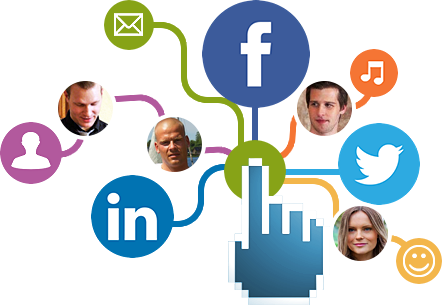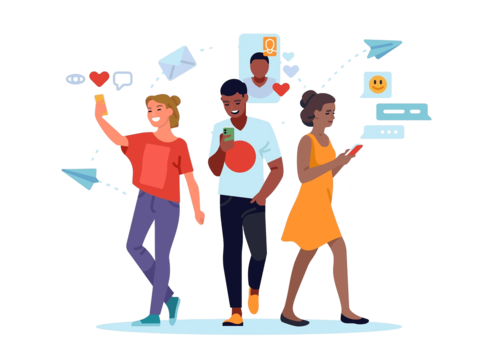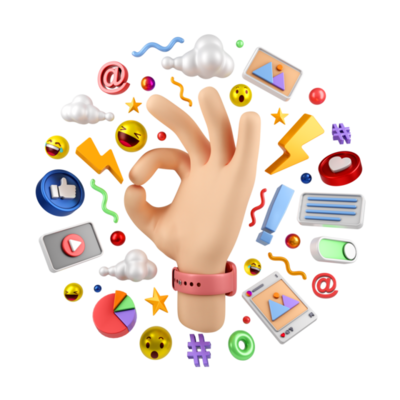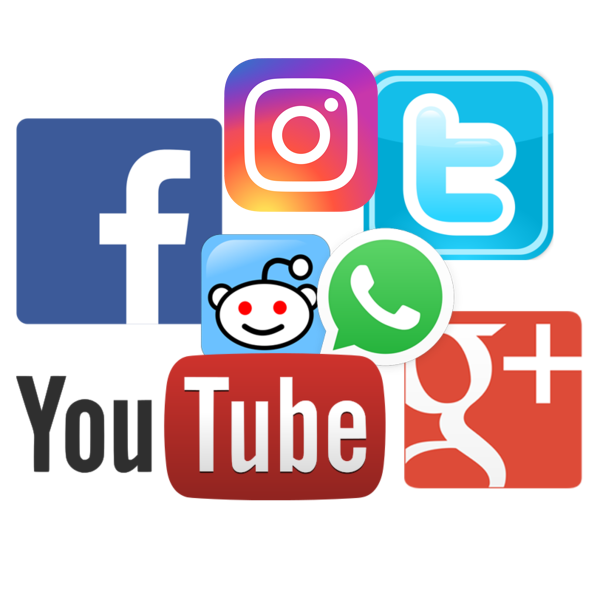If AI Ran a Brand’s Social Media, Would It Go Viral?

Social media has become the heartbeat of modern branding, where going viral can make or break a company. But what if artificial intelligence ran a brand’s social media? Could AI craft engaging, relatable content that captures the internet’s attention, or would it miss the mark? To find out, let’s explore how AI-generated content compares to real-world social media campaigns—both successful and unsuccessful.
How AI Creates Social Media Content

AI-driven content creation is powered by large language models (LLMs) and machine learning algorithms that analyze trends, user interactions, and engagement metrics. These systems generate text, images, and even videos based on historical data and real-time insights. Here’s how AI approaches social media marketing:
- Trend Analysis: AI scans platforms like Twitter, Instagram, and TikTok to identify trending topics, hashtags, and viral formats.
- Audience Targeting: Machine learning models analyze demographics and user behavior to tailor content to specific groups.
- Content Generation: AI writes captions, scripts, and generates images or videos optimized for engagement.
- Automated Posting & Engagement: AI schedules posts at peak engagement times and can even respond to user comments.
- Performance Optimization: AI tracks post performance, learns from engagement patterns, and adjusts content strategies accordingly.
AI vs. Real-World Campaigns: Who Wins?

To see how AI-generated content might perform, let’s compare it to some real-world social media campaigns.
- The Fictional AI-Generated Campaign: SnackVerse Energy Bars Imagine an AI creating social media content for a new brand, SnackVerse Energy Bars. The AI crafts the following post: “Tired of hitting a midday slump? 🚀 SnackVerse Energy Bars fuel your day with supercharged ingredients! 🌱⚡ RT if you need that boost! #StayEnergized #SnackVerse” The AI also generates an eye-catching, high-contrast image of the energy bar breaking through a lightning bolt, symbolizing energy.
- Comparing to a Real Success: Wendy’s “Roast Me” Campaign Wendy’s is famous for its witty, humorous approach to social media. Their “Roast Me” campaign invited users to ask for a roast, leading to hilarious, snarky replies that kept engagement soaring.
Why it worked:
- Authenticity: The human touch made responses feel organic and personal.
- Engagement: Encouraged users to interact, boosting virality.
- Humor: The internet loves well-crafted snark.
Could AI replicate this? Probably not to the same degree. While AI can generate witty responses, it lacks the nuanced humor and cultural awareness that human social media managers bring. 3. Comparing to a Real Failure: Pepsi’s Kendall Jenner Ad Pepsi’s infamous 2017 campaign featuring Kendall Jenner attempting to resolve social unrest with a can of soda was widely criticized as tone-deaf and out of touch.
Why it failed:
- Lack of Cultural Sensitivity: It trivialized serious social justice issues.
- Misjudged Audience Sentiment: It failed to resonate with the target demographic.
- Backlash Potential: Social media users quickly called out the insensitivity. Could AI have done better? Maybe. AI tools analyze user sentiment and trending discussions, potentially flagging the campaign as risky before launch. However, AI might still lack the deep understanding of social issues that human marketers bring.
The Pros and Cons of AI in Social Media Marketing

Pros
- Speed & Efficiency: AI can generate posts and analyze trends faster than humans.
- Data-Driven Decisions: AI optimizes content based on performance metrics.
- Scalability: AI can manage multiple platforms simultaneously.
Cons
- Lack of Emotional Intelligence: AI struggles with humor, sarcasm, and cultural sensitivity.
- Risk of Generic Content: AI-generated posts may lack originality and personal touch.
- Potential Backlash: Without human oversight, AI might post something inappropriate or off-brand.
Can AI-Run Social Media Go Viral?
AI is undoubtedly a powerful tool for social media marketing, but virality often hinges on human creativity, emotion, and cultural understanding. While AI can enhance social media strategies by optimizing engagement and automating tasks, the best campaigns still require a human touch. So, will AI-run social media go viral? The answer is: it depends. If used alongside human creativity, AI can be a game-changer. But left on its own, it might just miss the mark.